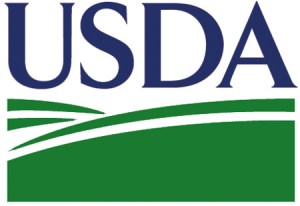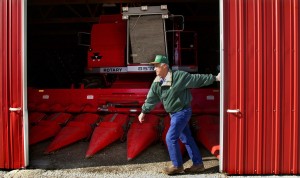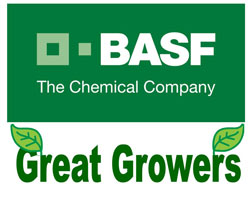 Agriculture Secretary Tom Vilsack announced $11.8 million in additional financial and technical assistance to help crop and livestock producers in 22 states apply conservation practices that reduce the impacts of drought and improve soil health and productivity. The USDA’s Natural Resources Conservation Service (NRCS) provides this assistance through its Wildlife Habitat Incentive Program (WHIP) and Environmental Quality Incentives Program (EQIP).
Agriculture Secretary Tom Vilsack announced $11.8 million in additional financial and technical assistance to help crop and livestock producers in 22 states apply conservation practices that reduce the impacts of drought and improve soil health and productivity. The USDA’s Natural Resources Conservation Service (NRCS) provides this assistance through its Wildlife Habitat Incentive Program (WHIP) and Environmental Quality Incentives Program (EQIP).
Since early summer, USDA has announced a variety of assistance to producers impacted by the drought, including opening conservation acres to emergency haying and grazing, lowering the interest rate for emergency loans, and working with crop insurance companies to provide flexibility to farmers. Just a few weeks ago, USDA announced $16 million in financial and technical assistance to immediately help crop and livestock producers in 19 states cope with the adverse impacts of the historic drought. In July, the Secretary announced USDA would allow producers to modify current EQIP contracts to allow for grazing, livestock watering, and other conservation activities to address drought conditions, and also authorized haying and grazing of WRP easement areas in drought-affected areas where haying and grazing is consistent with conservation of wildlife habitat and wetlands. The announcement expands upon these efforts and brings the total assistance to nearly $28 million.
See the additional NRCS drought assistance received by each state here. Learn more about drought categories here.
Producers and landowners are encouraged to visit the NRCS website or stop by their local NRCS office to find out if they are eligible for this new funding.






 Let’s talk big data and precision agriculture in this week’s program. Listen in on a conversation I just had with Bill Barton, Principal, XS, Inc. and Timothy P. Carroll, Sr. Network Engineer. XS, Inc. just announced a major upgrade to their storage area network (SAN) infrastructure.
Let’s talk big data and precision agriculture in this week’s program. Listen in on a conversation I just had with Bill Barton, Principal, XS, Inc. and Timothy P. Carroll, Sr. Network Engineer. XS, Inc. just announced a major upgrade to their storage area network (SAN) infrastructure.
 Even a Great Grower needs a little help from above to end up with a great crop to harvest, but Southwest Missouri farmer Kip Cullers says they got virtually no rain this season, resulting in yields that are “dismal at best.”
Even a Great Grower needs a little help from above to end up with a great crop to harvest, but Southwest Missouri farmer Kip Cullers says they got virtually no rain this season, resulting in yields that are “dismal at best.”
